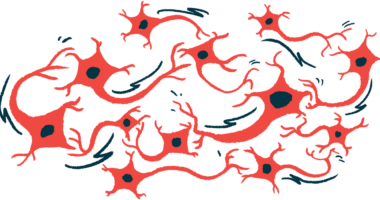Tofersen to Treat SOD1 ALS Under Review for European Union
EMA joins FDA in considering Biogen's request to approve therapy

The European Medicines Agency (EMA) has agreed to review an application seeking the approval of tofersen in treating amyotrophic lateral sclerosis (ALS) caused by mutations in the SOD1 gene, the therapy’s developer, Biogen, reported.
“Today’s announcement is an important milestone for the ALS community in Europe where there is a tremendous need for additional treatment options,” Philip Van Damme, MD, PhD, a professor of neurology and director of the Neuromuscular Reference Center at the University Hospital Leuven in Belgium, said in a Biogen press release.
Tofersen is already under review with the U.S. Food and Drug Administration, with a decision expected in April.
Tofersen trial suggests earlier treatment start slows ALS progression
“Regulatory submissions in the U.S. and now [European Union] represent an important step in our efforts to bring the first genetically-targeted treatment for SOD1-ALS to the ALS community as quickly as possible,” said Priya Singhal, MD, head of global safety and regulatory sciences and interim head of R&D at Biogen.
Early access programs for the experimental therapy, currently available in 34 countries, will continue, the company stated.
Mutations in the SOD1 gene are present in up to 20% of people with familial ALS, and as many as 2% of those with sporadic disease. These mutations lead to the production of a toxic form of the SOD1 protein that accumulates and damages nerve cells. Tofersen is administered directly into the spinal canal and aims to interfere with how the SOD1 gene is “read,” thereby lowering levels of the toxic protein.
Biogen’s applications in the U.S. and EU are supported in part by data from the Phase 1/2/3 VALOR clinical trial (NCT02623699) and its ongoing open-label extension study (NCT03070119), as well as results from a Phase 1 trial in healthy volunteers.
The Phase 1/2 portion of VALOR evaluated single and multiple ascending doses of tofersen and found the treatment to be generally well tolerated and able to reduce toxic SOD1 levels.
Top-line results from its Phase 3 portion showed tofersen failed to slow disease progression compared with a placebo, a main trial goal. However, the therapy significantly reduced levels of the toxic SOD1 protein and biomarkers of nerve damage.
Additionally, analyses suggested that rates of disease progression in the extension study were slower among patients given tofersen in the placebo-controlled VALOR trial compared with those who switched to active treatment in the open-label study — implying that earlier tofersen treatment may slow ALS progression.
“Through our clinical development program, we have seen that tofersen has the potential to slow the progression of this relentless and ultimately fatal disease,” Singhal said.
“The effects we have seen with tofersen diverge from the natural history of the disease and bring hope for the treatment of SOD1-ALS,” Van Damme added.







